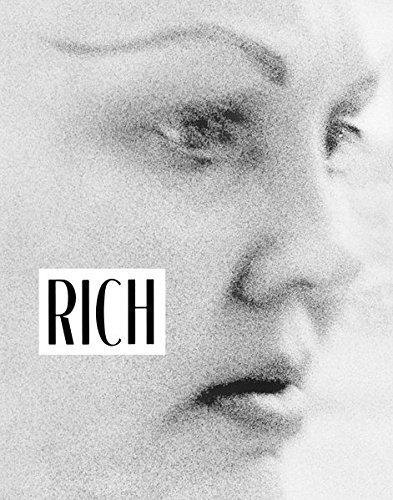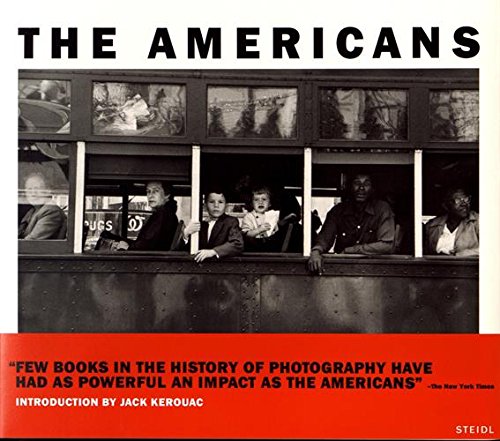Lauren Greenfield, Photographer
Lauren Greenfield is an American artist, documentary photographer and filmmaker. She has published four photographic monographs, four traveling exhibitions, directed four documentary features, and published in magazines throughout the world.
Her latest film, Generation Wealth, explores the growing culture of wealth.
Rich and Poor,
by Jim Goldberg
"His pictures are kind of simple portraits. He had the subjects write their own interpretation of the pictures and of themselves on the page in their handwriting. It's beautiful and it's so evocative. There's one picture where there's a mom and a son, and the mom has one interpretation of the picture, and the son has a very different interpretation of the picture, and the words are very honest. It was interesting, because he came to speak in our class, and he was really controversial, there were people from rich families who felt put in a box by him, like that he was very subjective in his view of rich people, that he did not portray them in a good light. And so it was just, I got so much both out of his work and also out of the reactions to his work, and how everybody kind of saw the pictures differently, from the people in the pictures to the photographers, to the people in my class."
All the Right People,
by Barbara P. Norfleet
"She was my teacher, and I think the book came out right around the time that I was taking her class in the 80s. I took her class 86, 87, so it was really exciting to see photography used this way. She taught this class called 'Photography as social documents' and in her book, I loved the way she did these first person interviews that went with the pictures, and how she kind of ... Well there are so many ways that her work inspired mine. First this idea of kind of looking at photography as a sociological tool, and also specifically the way she photographed privilege and social class, and kinda went after this group of rich people partially because she realized that reportage pictures did not exist of rich people, that people of privilege had controlled their own image. She started the photography archive at Harvard, there were just society pictures and commissioned portraits of rich people. There wasn't documentary work. . . . And my first work was interviews like hers, where it didn't go with the person, but I eventually moved into a more narrative format where the interviews did belong to the people in the pictures."
The Americans,
by Robert Frank
"It's probably an influence on all photographers, but for me it was just such a revelation to see that photography could make social commentary, could kind of show us what was all around us, but in a way that saw something completely different in it. We saw something that was provocative and critical and reflected us, but also so clearly through the photographer's eye. It really opened up the world of documentaries for me. That in a way documentaries could have authorship, and could have subjectivity, and could have point of view, and could have commentary, and really because of perspective and the way the photographer saw it."
The Photographic Essay,
by William Albert Allard
"He tells this one story that really impacted me about how when he's starting an assignment, and he arrives in a place, how you get in, and how you have to just kind of start over each time to try to ingratiate yourself in a way that's right for that place. I loved the way he described how that's always a challenge, because I think that it just never gets any easier, like trying to get people to accept you and invite you in, and gain trust and earn your access. He talks about how when you're earning our access, it doesn't matter how many times you've been published, or how many books you've done, or how man awards you've gotten, that you're just kind of like ... You just have to kind of start over and be yourself and earn trust and connect with the person, and I don't know, that was just very inspiring for me to hear somebody who has done it so many times talk about that challenge."
The Ballad of Sexual Dependency,
by Nan Goldin
"I remember I was living in New York, I don't even think I wanted to be a photographer at that point, and I saw that book in a book shop and picked it up randomly. It wasn't even a bookshop; it was a newsstand in my neighborhood, like Astor Place, and I just sat on the floor of the newsstand, it was like an indoor one, and just went through the whole book. It was such a revelation about what photography could be, and how it could be used and I'd just never seen anything like that before. I think her work is quite different from mine in that she has such a casual shot aesthetic, and uses light and color in a really different way from me. But I guess it does depict a world, which is similar, but it was so exciting to see that work. And I guess I should say that's the only woman that I've mentioned."
In/Sights,
By Joyce Tenneson
"This book just blew me away, because it was very political, it was in a way these kind of feminist portraits by women. Some of them were really weird and disturbing, but so expressive and so many different ideas about feminism and self. And they were all self-portraits, they were all set up, but it was a bold political statement in a way. And very disturbing, I think I was a teenager when I saw the book, and my mom was kind of a feminist, and it just was a kind of reflection of the time, but it was also ahead of the time in so many ways."








